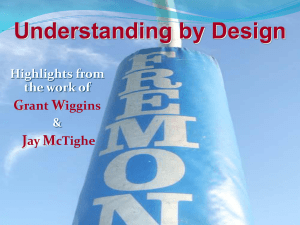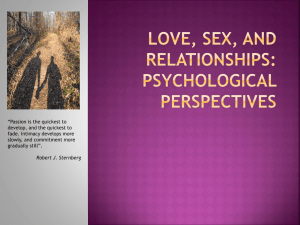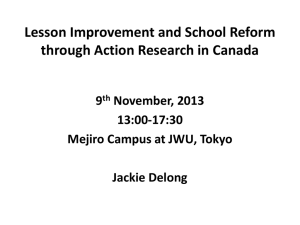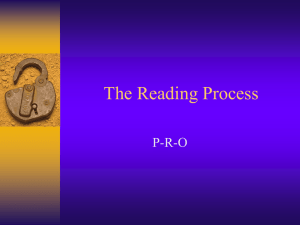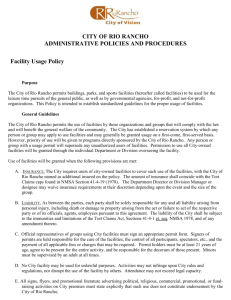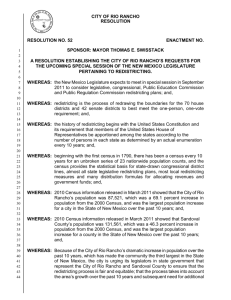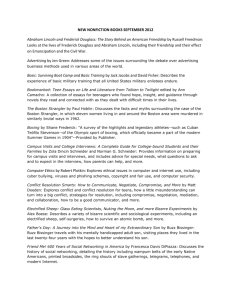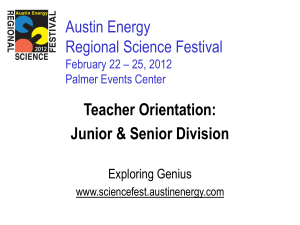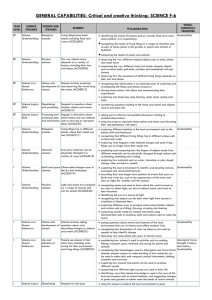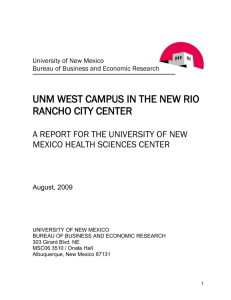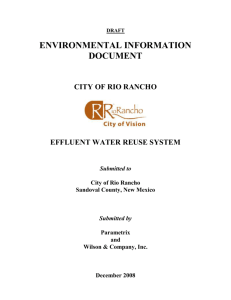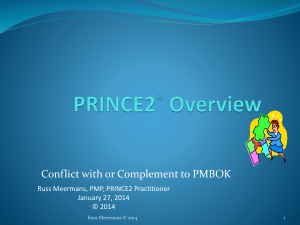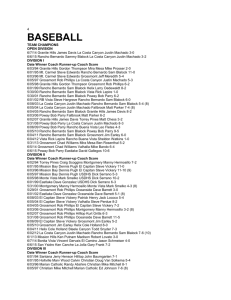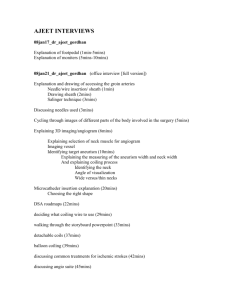Student Research Projects: Inquiry Learning 学生研究项目
advertisement
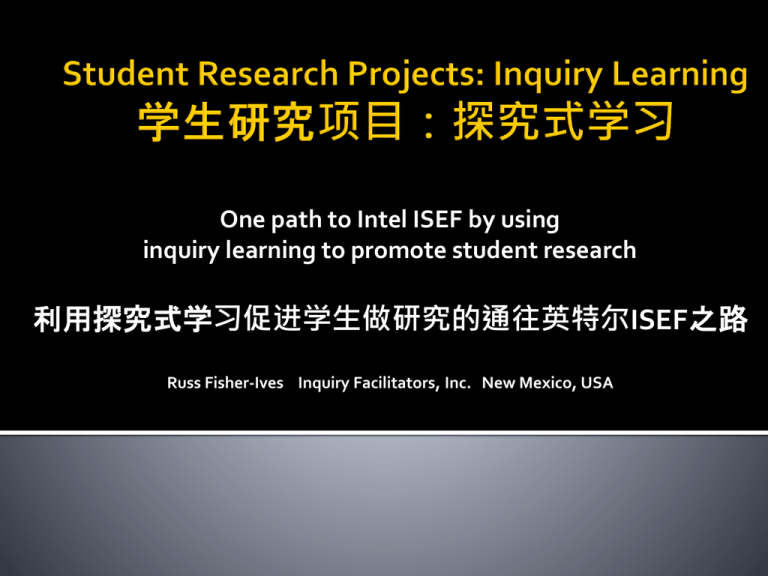
One path to Intel ISEF by using inquiry learning to promote student research 利用探究式学习促进学生做研究的通往英特尔ISEF之路 Russ Fisher-Ives Inquiry Facilitators, Inc. New Mexico, USA Identify a problem 确定一个问题 Form a testable question 形成一个可测的问题 Collect and analyze relevant data, 收集并分析相关数据 Present their findings 报告他们的发现 A HS math & physics instructor for 23 years 执教23年的高中教师 A new high school = A new beginning 一所新中学即是一个新起点 Intel ISEF & Intel’s Educator Academy 英特尔国际科学与工程学大奖赛以及英特尔教育家论坛 Rio Rancho HS: Student Research EXPO 1984- 97: ZERO experience with research projects 1984-97年: 高中物理和数学教师,阿尔伯基克市 对于研究项目零经验 “Students can’t…” “Students don’t want to…” “Not enough time or resources to…” 学生没办法做…… 学生不想做…… 没有足够的时间或资源来做…… 1997- 07: Director & Instructor, Science Academy Rio Rancho Public School 1997-07: 主管和教师,科学学会, Rio Rancho 公立学校 “Learn by doing” “实践学习” 1999: 2nd Annual Intel Educator’s Academy 1999: 第二届英特尔教育家论坛 Changed my life forever 改变我的终生 “Kids like ours”; Interest driven; Excitement; New opportunities; Motivated teachers 像我们的孩子一样的孩子;兴趣驱动;激情; 新机遇;被激励的教师 Back at Rio Rancho HS 回到Rio Rancho 高中 Summer workshop: 24 interested teachers 夏季工作坊:24名感兴趣的教师 Intel ISEF rules & guidelines 英特尔ISEF规则和指南 Use inquiry process; Product: research projects 利用探究过程;成果:研究项目 Open for all students, any content 对所有学生和任何内容开放 Start: beginning of the school year 启动:学年的初始 Project content: student interest >> course 项目内容:学生兴趣 >> 课程 Time management: divide the course into 1/3’s 时间安排:将课程分成三份 Grading: on-going during each 1/3 section 打分:每部分阶段做持续性评价 Finish: research project = 10% of final exam 结束:研究项目 = 10%的期末考试 YOU HOLD THE KEY 你掌握着关键 and 而且 YOUR CLASSROOM 你的教室 is where it starts 正是开始的地方 Because 因为 INQUIRY LEARNING 探究式学习 Is a research PROCESS to teach ANY content 是可以用来教授任何内容的研究过程 Questions – testable 问题——可测的 Investigations – data collection 调查——收集数据 Connections – relevance 联系——相关性 Discussions – public 讨论——公开 Reflections – change in me 反思——我的改变 Where do I start? 我从哪里起步? Identify how you use these skills now 鉴定你现在是如何运用这些技能的 How much do I change? 我改变多少? One lesson every 10 days (a 10% change) 每10天一次课 (以10%的效率改变) What will I encounter as I change my teaching style? 我在改变教学模式时会遇到什么? Resistance – It’s change; 抗拒——这就是改变 Identify a problem 确定一个问题 Form a testable question 形成一个可测的问题 Collect and analyze relevant data, 收集并分析相关数据 Present their findings 报告他们的发现 Connecting Jigsaw Puzzles 拼图 Who does NOT know what a jigsaw puzzle is? 谁不知道拼图是什么的? Who has NEVER worked on a jigsaw puzzle? 谁从未玩过拼图? 联系 Questioning & Discussing 提问和讨论 A question: 一个问题: What percentage of a 1000 piece jigsaw puzzle do you need to see to make a ‘reasonable drawing’ of the picture? 1000片的拼图中, 你要看百分之多少的小块才能形成 一幅“合理的图画”? Investigating & Discussing 调查和讨论 Collecting data: 收集数据 What data is relevant to the question? 什么数据是与此问题相关的? What data would NOT be relevant to the question? 什么数据是与此问题无关的? Discussing 讨论 Data Needed 需要的数据 Data NOT Needed 不需要的数据 Colors 颜色 Material 材质 Shapes 形状 Weight 重量 Forms 格式 Shape of piece 单片形状 Patterns 规律 Corners, edges 角,边 Investigating & Reflecting 调查和反思 Trial #1: 第一次尝试: Examine your pieces –检查你的拼图块 Record your data 记录你的数据 Make a conclusion using the data, 用数据得出一个结论 “What is the picture?” “是什么图片” Investigating, Discussing, & Reflecting 调查,讨论和反思 Trial #2: 第二次尝试 More data? 更多数据 ? Combine your pieces with 2 or 3 other investigators 把你的拼图块与2或3名其他调查者合并 Record your new data 记录你的新数据 RESTATE your conclusion about the picture 关于这幅图画重新陈述你的结论 Investigating, Discussing, & Reflecting 调查,讨论和反思 Confidence now? 现在有信心了吗? Trial #3: 第三次尝试 Get 6 to 8 people in a group 6到8人形成一组 Share and record the new data from each other 每个人分享和记录新的数据 Then RESTATE your conclusion about the picture 然后关于图片重新陈述你的结论 Reflecting 反思 Confidence now? 现在有信心了吗? Now ALONE… 现在单独行动…… Look at the following three pictures and choose the one that best fits your DATA. 看下面三幅图片并挑出最符合你的数据的那一张。 ????? #1 #2 #3 I’m NOT going to tell you! 我不告诉你! For a group of 10 people, about 2 % 对于10人的小组,大约2% Research: 研究: Learning how to make conclusions for a question based on limited relevant data 了解如何基于有限的相关数据为一个问题作出结论 Reflecting 反思 Pieces build pictures in student’s minds 学生脑中将碎片拼成了图片 Same data, different pictures 相同的数据,不同的图片 Can never teach all the pieces 永远不可能教授所有图片 But, the process of inquiry is ALWAYS present 但是,探究的过程是始终存在的 Discussing & Connecting 讨论和关联 Facts alone are like pieces without the picture 事实本身就像没有拼图全貌的碎片 Facts alone support disconnected thinking 事实本身支持不相关联的想法 RESEARCH provides REAL EXPERIENCE building REAL PICTURES 研究提供了建立真实图片全貌的真实体验 You hold the key… 你掌握着关键…… How will you use it? 你将如何使用它? Open doors? For change. 打开门?为了改变。 OR keep doors closed? and be safe. 抑或把门关紧?选择安全路线。 謝謝 Russ@gotoif.org Russ Fisher-Ives Inquiry Facilitators, Inc.






